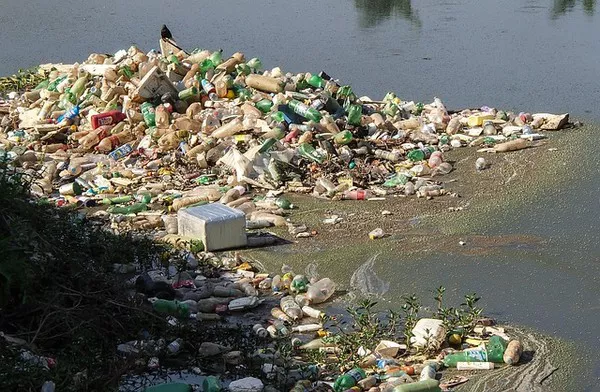California filed a lawsuit against ExxonMobil on Monday, accusing the oil giant of misleading the public for over fifty years by promoting the idea that the plastics it produces are recyclable. Attorney General Rob Bonta’s office revealed that in the United States, fewer than 5% of plastics are actually recycled into new products, despite being labeled as “recyclable.” This misrepresentation has contributed to the accumulation of plastic waste in landfills and oceans, exacerbating a global pollution crisis, the lawsuit claims.
“ExxonMobil told consumers, ‘Buy as much as you want, no problem, it’ll be recycled.’ These are lies designed to alleviate guilt over waste,” Bonta stated during a virtual news conference, where he was joined by representatives from environmental groups that also filed a similar lawsuit in San Francisco County Superior Court. “The end goal is to drive consumption and boost ExxonMobil’s profits.”
ExxonMobil, one of the largest plastic producers globally, countered the accusations by pointing to California’s ineffective recycling system. “For decades, California officials have known their recycling system isn’t effective. Instead of collaborating to improve the situation, they are shifting blame,” Lauren Kight, a spokesperson for the company, said in an email.
The lawsuit comes as part of a larger trend, with numerous U.S. municipalities, eight states, and Washington, D.C., having previously sued oil and gas companies regarding their contributions to climate change. California’s own lawsuit against major oil and gas corporations over misleading claims about fossil fuel risks is still ongoing.
Bonta’s office initiated an investigation into the fossil fuel and petrochemical industries in April 2022, leading to the discovery of previously hidden documents. The complaint alleges that ExxonMobil violated California’s nuisance and unfair competition laws by concealing the detrimental impacts of plastics.
The timing of the lawsuit coincides with Governor Gavin Newsom’s signing of a statewide ban on plastic shopping bags at supermarkets. Bruce Huber, a Notre Dame Law School professor specializing in environmental law, cautioned that California faces challenges in pursuing this lawsuit, particularly due to the complexities surrounding public nuisance law. “Securing relief could be difficult without opening the door to a multitude of similar claims,” he explained.
According to the lawsuit, ExxonMobil was aware that plastic is “extremely costly and difficult to eradicate” and that it breaks down into harmful microplastics. Despite this knowledge, the company actively promoted recycling as a viable solution through various media channels, while simultaneously increasing plastic production.
ExxonMobil has recently been advocating for “advanced recycling” or “chemical recycling,” claiming that these processes can effectively convert old plastics into new products. However, the lawsuit states that only 8% of materials successfully undergo this transformation.
The state aims to compel ExxonMobil to cease its alleged deceptive practices and to establish an abatement fund along with civil penalties for the resulting harm. Bonta emphasized the shocking nature of the lawsuit’s findings for consumers who believed they were participating in recycling efforts. “This revelation will stun many who thought they were recycling products when, in reality, they were misled by ExxonMobil about the myth of recycling,” he said.


